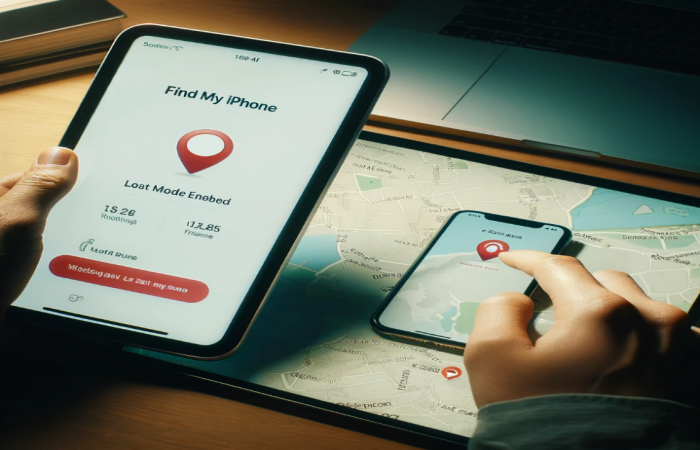
How to Stop People From Going Through Your Phone Over Your Shoulders
We live in a world where everything from personal chats and bank transactions to work emails happens on our screens. While we may feel secure typing away on our smartphones and laptops, we often forget about the risks of "shoulder surfing"—a silent threat that lurks behind us. So, what is shoulder surfing, and how can we protect ourselves?
Understanding Shoulder Surfing
Shoulder surfing is when someone discreetly looks over your shoulder to steal sensitive information from your screen. It’s more common than you think: a simple glance in a crowded place, someone seated close to you on public transit, or even a passerby peeking into your laptop at a coffee shop. With this tactic, criminals can capture information as simple as your social media chats or as critical as banking passwords and company emails. And it’s not just a concern for corporate employees or tech-savvy users—it’s a risk for anyone with a device.
Where Are You Most at Risk?
The places where people shoulder surf often have common traits—close seating, high traffic, and public spaces. Here are some everyday environments where the risk is highest:
Public Transportation: Subways, buses, and even taxis where people are within proximity to each other.
Cafes and Restaurants: Where tables are close together and people may unknowingly glance at your screen.
Airports and Airplanes: Particularly vulnerable due to shared spaces and seating arrangements.
Workspaces and Libraries: Open desk layouts mean screens are often visible to those around you.
Public Parks and Outdoor Spaces: Especially when screens are positioned to be visible to passersby.

How to Recognize Shoulder Surfing
The best defence against shoulder surfing starts with awareness. Recognize it by observing these common signs:
Someone is hovering near you without a clear reason.
You notice someone in your peripheral vision glancing at your device.
People are sitting unusually close in situations where they don’t need to.

Steps to Prevent Shoulder Surfing
Now that you know the risks, here are some effective ways to protect yourself from shoulder surfers:
Use a Privacy Screen Filter or Protector: Privacy screens limit the visibility of your screen to only those directly in front of it. This is one of the simplest and most effective ways to keep prying eyes away.
Be Mindful of Your Surroundings: When handling sensitive information, sit with your back against a wall. This gives you a clear view of anyone approaching.
Adjust Brightness Levels: Reducing the brightness of your screen can make it difficult for people around you to see. While not a foolproof solution, it can add an extra layer of discretion.
Use Biometric Authentication: Many devices now offer biometric security options like fingerprint or face recognition. This helps ensure only you can access your device even if someone sees your password.
Limit Screen Time in Public Places: Avoid accessing sensitive information, such as bank accounts or confidential work documents, in public spaces if you can wait until you’re in a more secure location.
Set Up App Notifications Carefully: Many apps display previews of messages or emails as notifications. Disable message previews or sensitive notifications on your lock screen to avoid accidentally exposing personal information.
Be Conscious of Your Screen Angle: In some cases, even adjusting the tilt of your screen can limit visibility for those around you.
Regularly Change Passwords and Use Strong Passwords: It’s always good practice to update passwords periodically and avoid using easily guessed ones.

Using Technology to Fight Shoulder Surfing
Some companies are now developing AI-based solutions that detect shoulder surfing. These apps use your device’s camera to monitor people around you and alert you when someone appears to be looking at your screen. Although still emerging, this technology could become a mainstream security feature in the future.
Final Thoughts
Shoulder surfing may seem like a low-tech threat in our high-tech world, but it’s one of the easiest ways for criminals to steal personal information. By staying alert, understanding the risk, and using simple prevention techniques, you can protect yourself from the eyes of shoulder surfers. Remember, vigilance is the first line of defence in keeping your private data truly private.

















